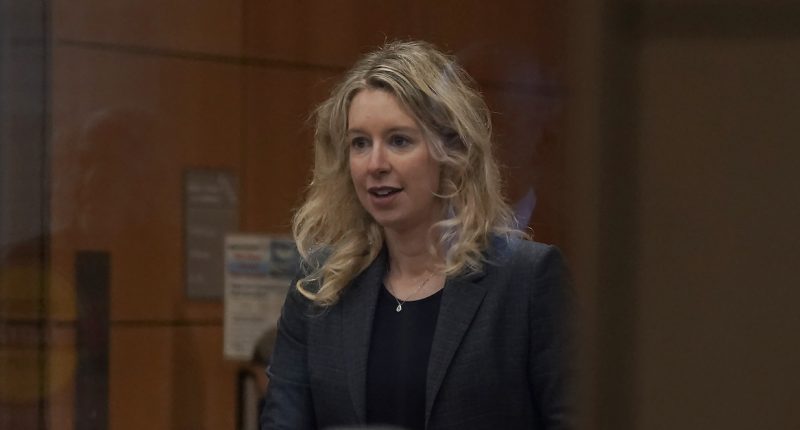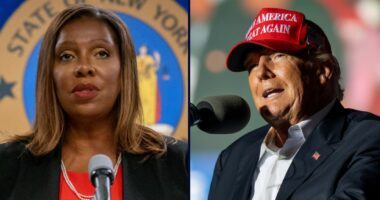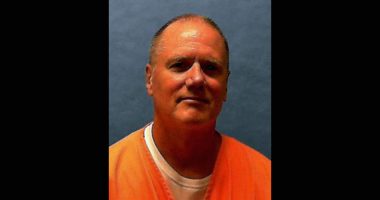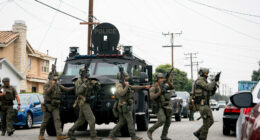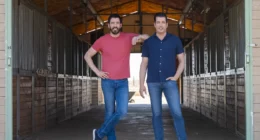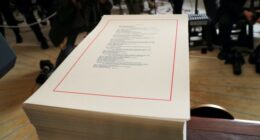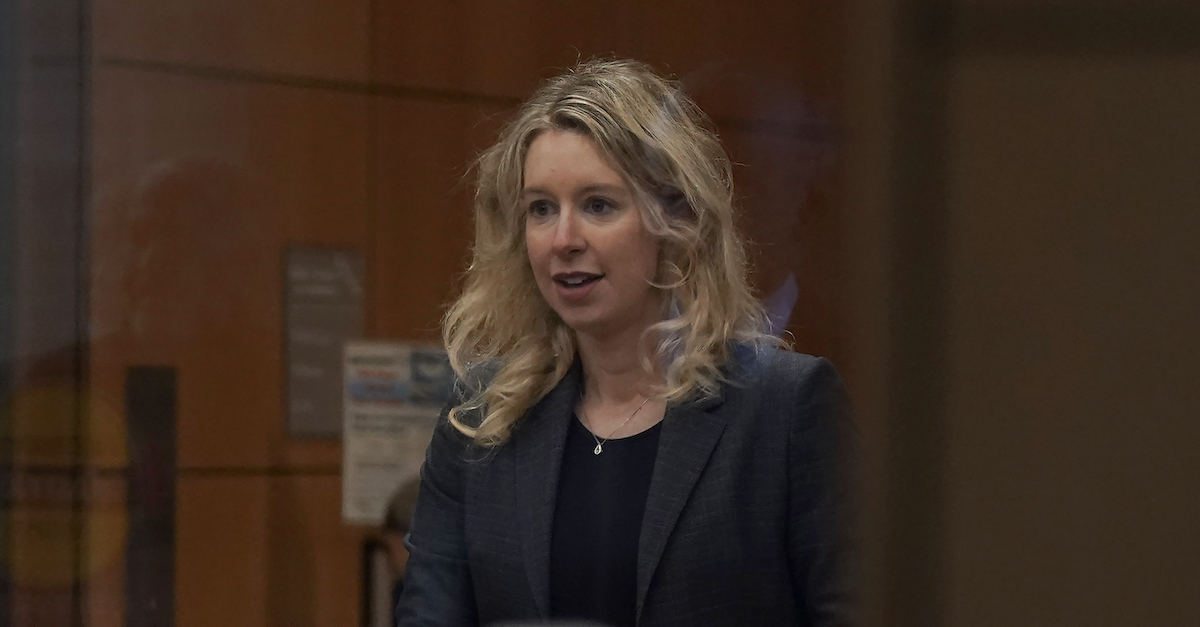
Former Theranos CEO Elizabeth Holmes arrives at federal court in San Jose, Calif., Monday, Oct. 17, 2022 (AP Photo/Jeff Chiu).
A federal appeals court in California on Monday upheld the criminal convictions, sentence, and restitution ordered against Elizabeth Holmes, who was found guilty of perpetrating a massive fraud through her multibillion-dollar tech startup, Theranos.
A three-judge panel on the San Francisco-based U. S. Court of Appeals for the Ninth Circuit unanimously upheld Holmes’ conviction on four federal crimes, her 11-year prison sentence, and more than $200 million restitution payment. The court similarly affirmed the nearly 13-year sentence for Holmes’ ex-boyfriend and former Theranos COO Ramesh “Sunny” Balwani along with nearly $250 million in restitution owed to the investors the duo defrauded.
The now-41-year-old Holmes in 2015 was ranked by Forbes as the youngest and wealthiest self-made billionaire from Theranos. Her company claimed to have developed a revolutionary method to perform blood testing with an amount as small as a finger prick, and at its height, Theranos rose to a $9 billion valuation and counted the likes of News Corp chairman Rupert Murdoch, former Secretary of State Henry Kissinger, and Oracle founder Larry Ellison as investors.
Theranos and Holmes’ larger-than-life reputation came crashing down after the Wall Street Journal’s John Carreyrou investigated her enterprise in a series of articles, followed by a book titled “Bad Blood: Secrets and Lies in a Silicon Valley Startup.” HBO later turned the book into a documentary.
A federal jury in the Northern District of California then agreed that Holmes’ company left behind a trail of fraud.
The judicial panel — made up of Circuit Judges Mary M. Schroeder, Jacqueline H. Nguyen, and Ryan D. Nelson — rejected claims that Holmes’ and Balwani’s separate trials in 2022 were marred by evidentiary errors that should result in their convictions being overturned. The duo argued that the trial court abused its discretion by allowing a former Theranos employee to offer expert opinions despite the fact that he was testifying as a layperson.
Holmes argued the witness, Theranos lab director Dr. Kingshuk Das, who was involved with the company’s Patient Impact Assessments on the blood testing machine called the Edison, provided expert testimony despite the court failing to properly vet him as an expert. Das testified that, based on the data analyzed in the assessments, the Edison was “unsuitable for clinical use,” a conclusion he said he relayed to Holmes.
“Das shared with Holmes his concerns that, based on ‘the validation data,’ he believed that ‘these instruments apparently were not performing from the very beginning,”” the appellate court wrote. “Das then explained that, when he raised these issues, Holmes attributed the poor results to laboratory control failures rather than an issue with the device itself — an explanation that Das found unsatisfying.”
The panel found that certain aspects of Das’ testimony “veered into expert territory,” but ultimately concluded that “any error was harmless.”
“Nevertheless, any error in admitting these opinions was harmless,” Nguyen wrote. “To the extent that Holmes is now challenging Das’s qualifications as an expert, we conclude he was qualified. Based on his extensive experience working in clinical laboratories, Das would have easily qualified as an expert to deliver the disputed opinion testimony.”
The panel also determined that the admission of Das’ testimony did not likely affect the jury’s verdict due to “the weight of other evidence” the government presented against Holmes.
“Das’s testimony was relevant to misrepresentations concerning the technological capabilities of the device, but such misrepresentations constituted only one of numerous types of misrepresentations to investors that the government alleged and presented evidence to prove,” the order states. “The government offered evidence that Holmes misrepresented Theranos’s financial status, its reliance on third-party testing devices, its partnerships with Walgreens and the military, and pharmaceutical companies’ purported validation of Theranos’s technology. Das’s testimony about the technology’s unreliability was not essential to proving any of these misrepresentations.”
Holmes may now try to have her case heard by the full panel of judges or petition the U.S. Supreme Court, both of which are likely considered long-shot efforts.
